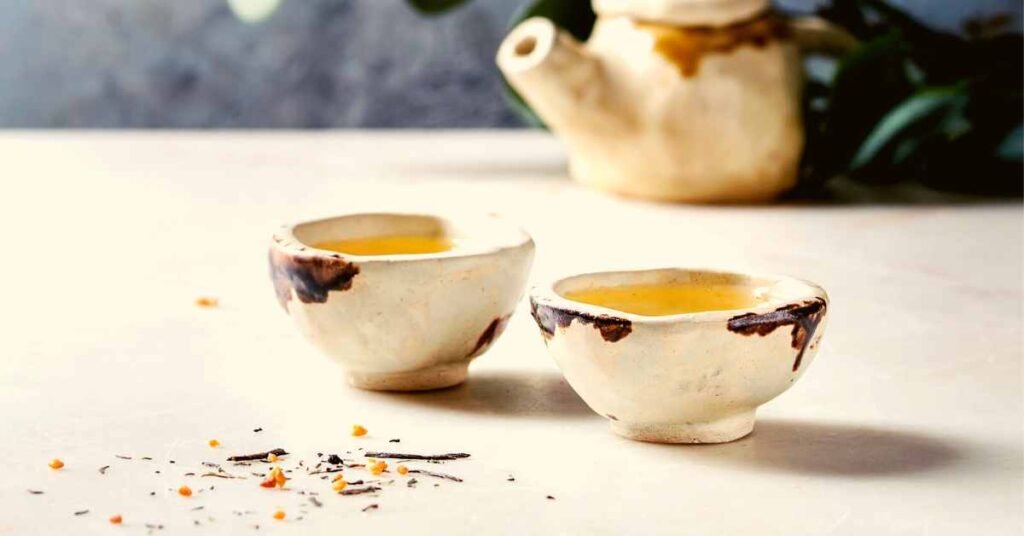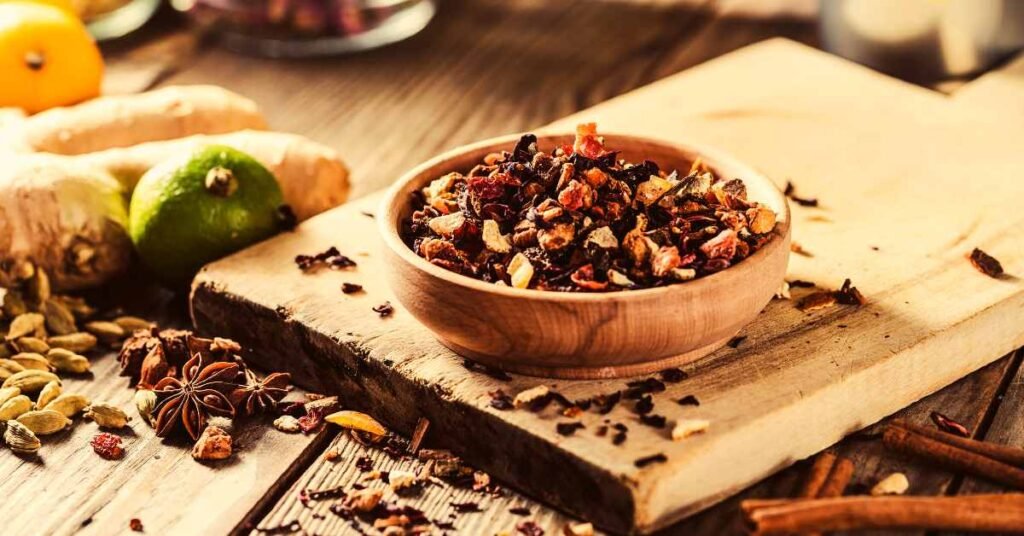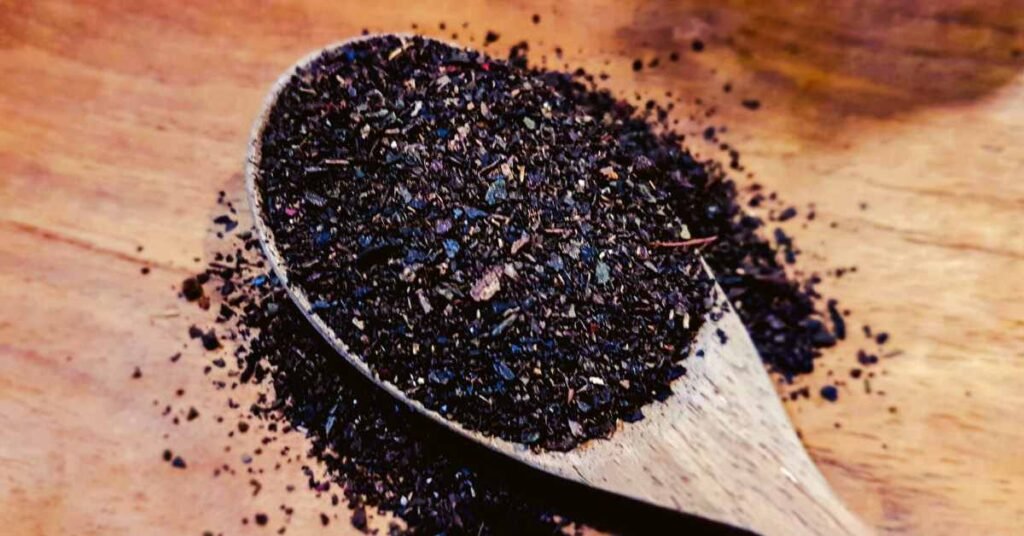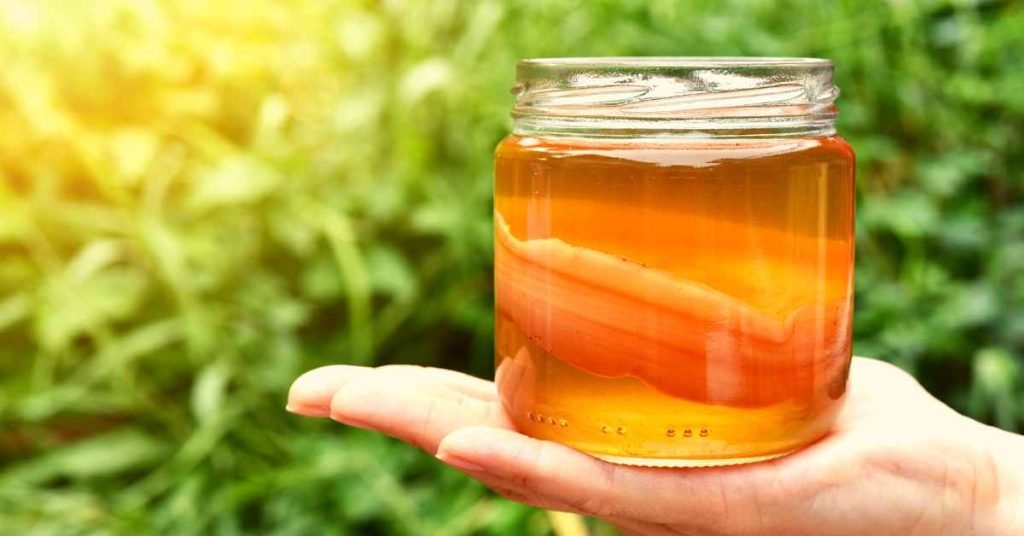Kombucha, a fermented tea beverage with a rich history dating back centuries, has gained immense popularity for its unique taste and potential health benefits.
One crucial element in the kombucha-making process is the choice of tea used during fermentation.
The type of tea not only influences the flavor profile of the final product but also contributes to the health-promoting properties of the beverage.
In this article, we will delve into the world of teas and explore which varieties are best suited for brewing the perfect batch of kombucha.
Understanding Kombucha Fermentation

Before delving into the specifics of tea selection, it’s essential to grasp the basics of kombucha fermentation.
Kombucha is created through the fermentation of sweetened tea by a symbiotic culture of bacteria and yeast (SCOBY).
The fermentation process involves converting the sugars in the sweetened tea into organic acids, carbon dioxide, and a trace amount of alcohol, resulting in a tangy and effervescent beverage.
Tea as the Foundation
The choice of tea serves as the foundation for any successful kombucha brew.
While some experimental brewers may use herbal teas or blends, traditional kombucha is typically made with true tea, derived from the Camellia sinensis plant.
The primary tea options for brewing kombucha include black tea, green tea, white tea, and oolong tea.
Black Tea
Black tea, fully oxidized and robust in flavor, is a popular choice for brewing kombucha.
It provides a strong and distinct taste to the beverage, which can be either enhanced or balanced with other tea varieties.
The tannins in black tea contribute to the body and mouthfeel of kombucha, creating a well-rounded flavor profile.
Common black tea varieties for kombucha include Assam, Darjeeling, and Ceylon.
Green Tea

Known for its lighter and more delicate flavor profile, green tea is another widely used option for kombucha brewing.
Green tea imparts a grassy and slightly astringent taste to the beverage, creating a refreshing and crisp finish.
Additionally, green tea is praised for its potential health benefits due to high levels of antioxidants and polyphenols.
Varieties like Sencha, Dragon Well, and Gunpowder are popular choices for kombucha enthusiasts.
White Tea
White tea, the least processed among true teas, offers a subtle and nuanced flavor that can elevate the complexity of kombucha. With its delicate floral and fruity notes, white tea contributes a light and mellow character to the brew.
While considered less common in kombucha making, white tea enthusiasts appreciate its ability to let other flavors, such as those from added fruits or spices, shine through.
Oolong Tea
Oolong tea, partially oxidized and featuring a flavor profile between green and black tea, adds depth and complexity to kombucha.
Oolong tea’s unique characteristics can bring a nuanced sweetness and floral aroma to the beverage.
Its versatility allows brewers to experiment with different oolong varieties, ranging from lightly oxidized Tie Guan Yin to more heavily oxidized Wuyi Rock Oolong.
Choosing the Right Tea Blend

While many kombucha enthusiasts opt for a single tea variety for their brew, blending different teas can result in a more complex and interesting flavor profile.
Experimenting with tea blends allows brewers to tailor the taste to their preferences, achieving a balance between the boldness of black tea, the freshness of green tea, or the subtlety of white tea.
A popular blend might include a mix of black and green tea, providing a harmonious combination of flavors.
Considerations for Choosing Tea
Several factors influence the choice of tea for kombucha brewing, beyond just flavor preferences:
Caffeine Content:
Tea naturally contains caffeine, and the caffeine content varies among different tea types.
Black tea generally has the highest caffeine content, followed by oolong and green tea, while white tea contains the least.
Brewers may choose tea varieties based on their desired caffeine levels, especially if they are sensitive to or wish to limit caffeine intake.
Antioxidant Levels:
Teas, especially green and white varieties, are known for their antioxidant content.
These compounds contribute to the potential health benefits of kombucha.
Brewers interested in maximizing the antioxidant content of their kombucha may lean towards green or white tea as their primary brewing ingredient.
Organic and Unflavored Teas:
To ensure a healthy and successful fermentation process, it’s advisable to use organic and unflavored teas.

Some commercial teas may contain oils, additives, or artificial flavors that can interfere with the fermentation process or negatively impact the SCOBY.
Pure, high-quality teas provide a clean canvas for the fermentation to take place.
Experimentation and Personal Preferences:
Ultimately, the “best” tea for brewing kombucha is subjective and depends on personal taste preferences.
Homebrewers are encouraged to experiment with different tea combinations and ratios to discover the flavor profile that suits their palate.
Whether it’s a bold black tea, a delicate green tea, or a unique blend, the possibilities are endless.
Final Word
In the world of kombucha brewing, the choice of tea plays a pivotal role in shaping the flavor, aroma, and potential health benefits of the final beverage.
Each tea variety brings its own unique characteristics to the fermentation process, allowing brewers to tailor their kombucha to their liking.
Whether one prefers the robustness of black tea, the freshness of green tea, the subtlety of white tea, or the complexity of oolong tea, the key is to experiment, learn, and enjoy the art of crafting the perfect kombucha brew.
MEDICAL DISCLAIMER
Itsnevernotteatime.com cannot and does not contain medical/health advice. The medical/health information is provided for general and educational purposes only and is not a substitute for professional advice.




